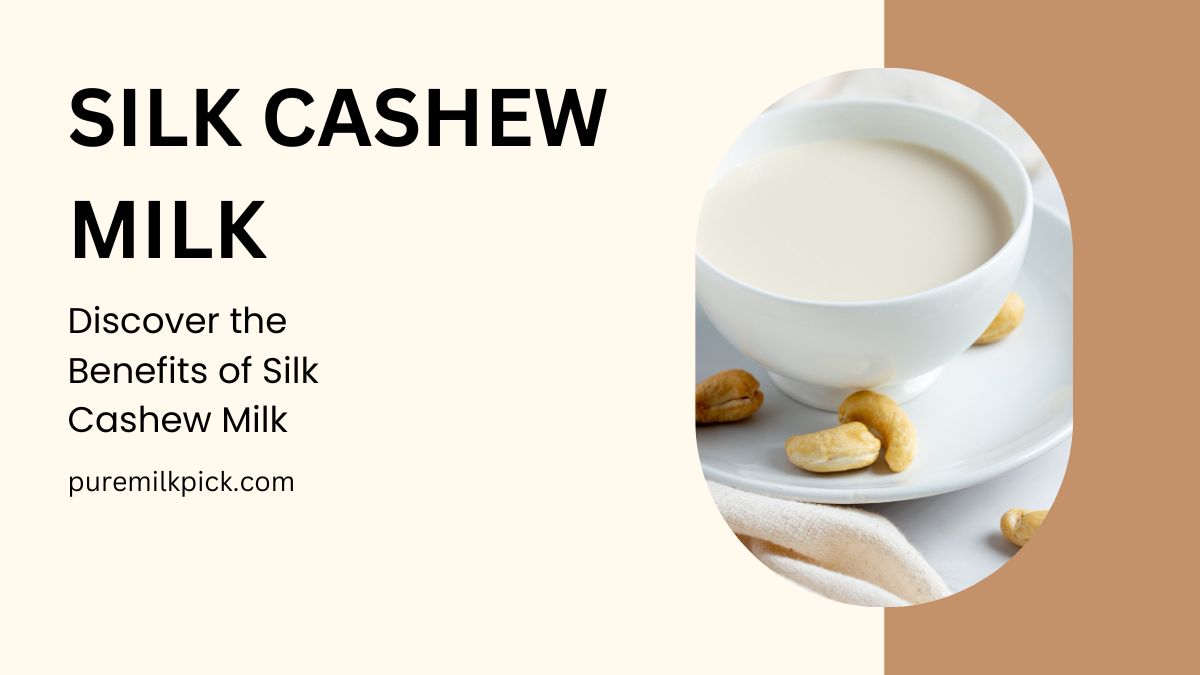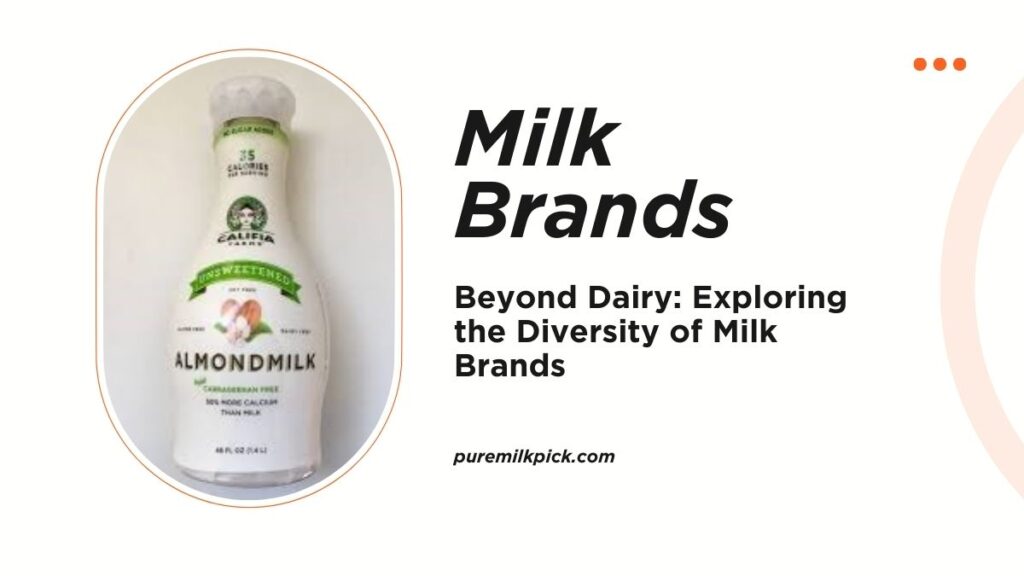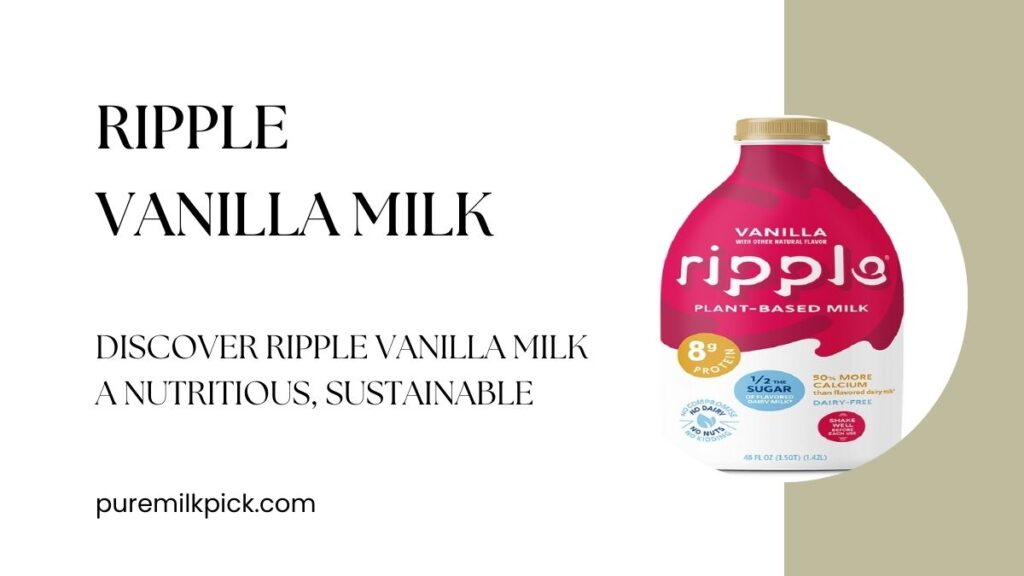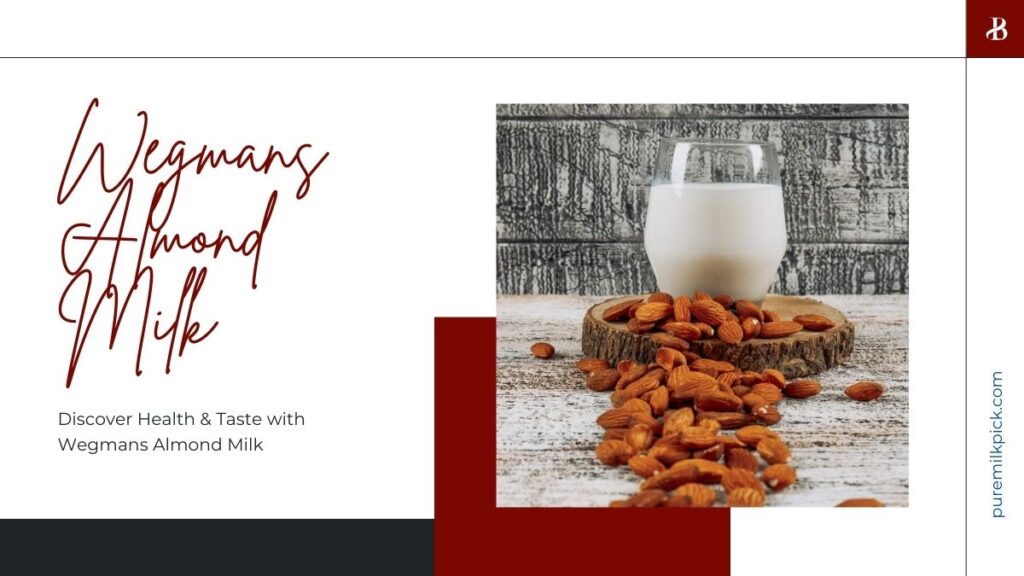Silk Cashew Milk begins its journey in lush groves where cashew trees bloom in abundance. The cashews are harvested and carefully selected for quality before they embark on their transformation. The nuts are soaked and blended, creating a rich creamy mixture. This mixture is then strained, retaining the luscious creamy liquid called Silk Cashew Milk.
In recent years, a shift towards healthier, plant-based alternatives has swept across the globe, and Silk Cashew Milk has become a favorite choice among consumers. It offers a unique blend of creamy texture and subtle nutty flavor, providing a delightful twist to traditional dairy milk. It caters to the growing demand for lactose-free, plant-based options, fitting perfectly into the dietary practices of vegans and lactose-intolerant individuals alike. The rise in popularity of Silk Cashew Milk underscores a broader trend towards conscious consumption and sustainable living, a trend that shows no signs of slowing down.
Understanding Silk Cashew Milk
Silk Cashew Milk is a rich, creamy blend of filtered water and cashews. The simplicity of its ingredient list attests to its purity – no unnecessary additives or artificial flavors, just a touch of sea salt to enhance the natural sweetness of the cashews. Nutritionally speaking, Silk Cashew Milk is a compelling choice. It’s low in calories and carbs but serves up a healthy dose of heart-friendly fats. Moreover, it’s a good source of calcium and vitamin D, providing comparable amounts to those found in dairy milk. When compared to other plant-based milk alternatives, Silk Cashew Milk stands out for its creamier texture and richer flavor, all while maintaining a similar nutritional profile.
Production Process of Silk Cashew Milk
The production process of Silk Cashew Milk prioritizes sustainability and ethical sourcing. The journey begins at fair-trade, organic cashew farms. Once harvested, the cashews are soaked and blended into a creamy mixture, then filtered to separate the milk. Crucially, the production process is designed to minimize waste and maximize efficiency, a testament to the brand’s commitment to environmental responsibility. The result of this meticulous process is a delicious, eco-friendly milk alternative that aligns with the values of conscious consumers.
Benefits of Silk Cashew Milk
Health Benefits
Silk Cashew Milk is not only delicious but also delivers numerous health benefits. Being lactose-free, it is a great option for individuals who are lactose intolerant or allergic to dairy. It is low in calories compared to traditional dairy milk and other plant-based alternatives, making it a fantastic choice for those watching their calorie intake. Moreover, Silk Cashew Milk is a good source of vitamins and minerals, such as calcium and vitamin D, which are essential for bone health. These nutrients also contribute to a balanced diet, helping meet the nutritional needs of various health conditions.
Versatility in Culinary Uses
Silk Cashew Milk’s creamy texture and subtle nutty flavor make it an incredibly versatile ingredient in the kitchen, enhancing both sweet and savory dishes. It can be used as a dairy substitute in baking, adding a rich creaminess to cakes, muffins, and cookies. Similarly, Silk Cashew Milk can be used in cooking, adding a depth of flavor to sauces, soups, and curries. It’s also a delightful addition to beverages, whether it’s simply adding a dash to your coffee or blending it into smoothies. For a creative twist, try freezing Silk Cashew Milk into ice cubes for a cool, refreshing treat in your iced coffee or tea. The possibilities for incorporating this delicious, healthful milk alternative into your everyday meals are boundless.
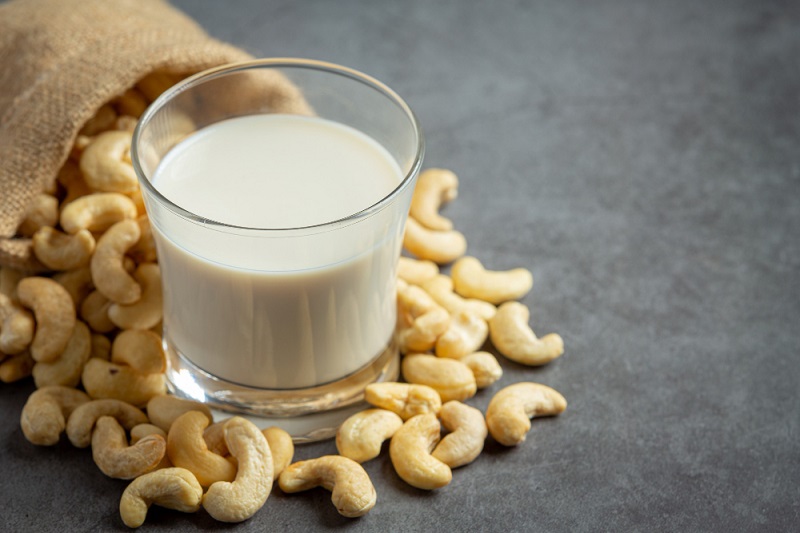
Silk Cashew Milk vs. Other Alternatives
Taste and Texture
Silk Cashew Milk is often praised for its smooth, creamy texture and pleasant, subtly nutty taste. Unlike other non-dairy alternatives, which may have a thin, watery consistency, Silk Cashew Milk has a luxurious thickness that is reminiscent of traditional dairy milk, making it a popular choice for those looking to replicate the experience of dairy in their dishes and drinks. In comparison to almond milk, which can sometimes have a bitter aftertaste, or soy milk, which can be slightly beany in flavor, Silk Cashew Milk offers a gentle, sweet flavor profile that enhances rather than overpowers.
Personal Experiences and Preferences of Consumers
Many consumers appreciate Silk Cashew Milk for its richness and versatility. Those who have made the switch from dairy or other plant-based alternatives often commend the product for its ability to seamlessly blend into their daily routines, from morning coffees to homemade baked goods. However, taste preferences can be subjective and vary considerably from person to person, so it’s always encouraged to try different plant-based milks to find the one that suits your palate and dietary needs.
Read More: Unveiling Great Value Milk Quality, Nutrition, and Affordability
Environmental Impact
Choosing Silk Cashew Milk over traditional dairy milk is a step towards environmentally friendly living. Dairy production is known to have a heavy environmental impact, contributing significantly to greenhouse gas emissions, water pollution, and land degradation. In contrast, the production of cashews requires less water and land and emits far fewer greenhouse gases. In this sense, opting for Silk Cashew Milk is not only a health-conscious decision but also an earth-conscious one.
Comparison of Carbon Footprints and Water Usage in Production
Compared to dairy milk, the carbon footprint and water usage involved in producing Silk Cashew Milk is significantly lower. The production of dairy milk requires substantial resources, including high volumes of water for cow hydration and land for grazing. Conversely, cashews are a far more sustainable crop, requiring less water and land. Therefore, by choosing Silk Cashew Milk, consumers take a step towards reducing their environmental impact.
Testimonials and User Experiences Silk Cashew Milk
Numerous customers have shared their experiences with Silk Cashew Milk, often highlighting its delightful taste and texture. One user stated, “As someone who is lactose intolerant, finding Silk Cashew Milk has been a game-changer. It’s great in my morning coffee and even in my baking. I love that it’s creamy and doesn’t have a strong nutty flavor.” Another satisfied customer shared, “I’ve tried many plant-based milk alternatives, and Silk Cashew Milk is by far my favorite. It’s significantly creamier than almond milk and doesn’t have the peculiar aftertaste of soy milk.” Yet another testimonial praised its eco-friendliness, stating, “It’s a big win for me that Silk Cashew Milk is not only delicious and nutritious but also environmentally friendly. I’m all about making choices that are good for my health and the planet.” These experiences underscore the positive reception of Silk Cashew Milk among its users, further solidifying its standing as a leading plant-based milk alternative.
Conclusion
In conclusion, Silk Cashew Milk stands out as a versatile, nutritious, and eco-friendly alternative to dairy milk. Its rich, creamy texture and subtly sweet flavor make it a delightful addition to a wide range of recipes, from sweet baked goods to savory sauces. It’s particularly beneficial for those with dietary restrictions, such as lactose intolerance, and can help to maintain a balanced diet due to its essential nutrients. Furthermore, the choice of Silk Cashew Milk aligns with environmentally conscious decision-making, as its production requires significantly fewer resources compared to traditional dairy. Testimonials from satisfied customers underscore its high quality, compatibility with various dishes and drinks, and positive impact on sustainable living. We highly encourage individuals exploring dairy alternatives to consider Silk Cashew Milk – a choice that is not only beneficial for personal health but also for our planet.
Frequently Asked Questions
Yes, Silk Cashew Milk is an excellent choice for those with dietary restrictions. It is lactose-free, making it suitable for individuals with lactose intolerance. Please check the label for further allergen information.
The production of Silk Cashew Milk is far more sustainable compared to dairy milk. Dairy farming requires substantial resources and contributes significantly to greenhouse gas emissions, water pollution, and land degradation. On the other hand, cashews require less water and land and emit fewer greenhouse gases.
Absolutely! Silk Cashew Milk is a versatile ingredient in the kitchen. It can be used in place of traditional dairy milk in a wide range of recipes, from sweet baked goods to savory sauces, adding a rich creaminess without overpowering the dish.
